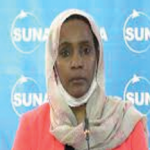In a nutshell
- Sudan has been through a revolution that determined freedom, peace, and justice as its radical slogan of change. Literature has demonstrated health as a dynamic concept that has an evident link with social and economic systems .
- Health and well-being of the population is a foundational responsibility that the government should invest in.
- The perpetuated system failure calls for a radical comprehensive multisectoral reimagining of Sudan’s health model in tandem with the broader political and economic reform and the agreed upon ruling ideology is indispensable. Hence, the health and its systems should not be read in isolation from the overall political , economic, development systems , and state building programme.
- The policy should be proactive and demand-driven, community-focused, and equity-focused rather than market and commodity driven.
- The policy should be synchronised with the overall governance system yet be able to demonstrate an effective governance model or an appropriate decentralisation model that caters for health and development in a unified and equitable manner. Any negligence of discussing the ongoing decentralised system as a possible impediment to achieving the utmost health outcome will hinder the radical move towards equity and justice in health.
- Having a multi-disciplinary dialogue that determines the best primary level approaches for health whether a modified primary care, primary health care, a hybrid, or both based on different state/region context. The human resource planning should be aligned with an in-depth demand-supply framework, and economic and fiscal solutions for medicine supply should be emplaced in a financing policy.
- Renewal of local manufacturing policy for essential medicines in an innovative way that incorporates multiple disciplines and technology to model for the development impact of local manufacturing and its effect on reducing the cost of supply chain aspects.

Speakers
Sara Hassanain
Former Acting Minister of Health, Sudan

Authors
Abdelhadi Eltahir
Independent Consultant and Expert of Health Issues

Authors
Lina Elbadawi
World Food Programme


